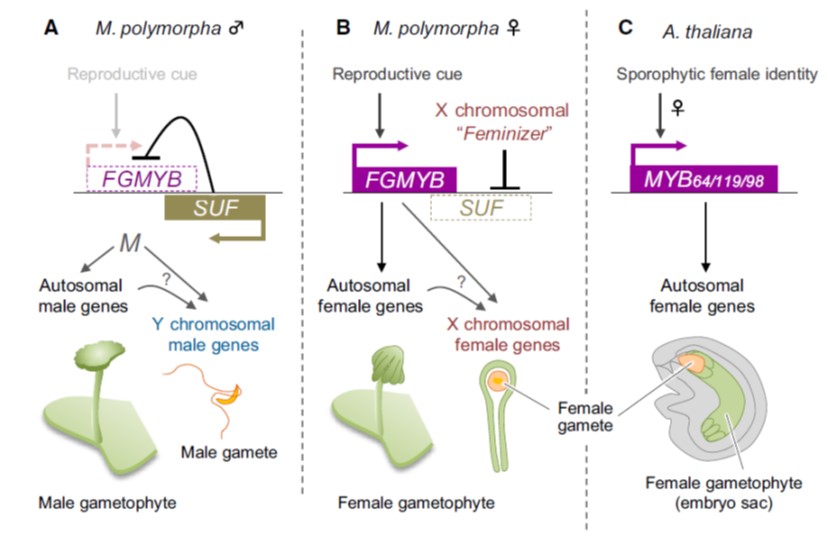
A bidirectional switch controls sexual dimorphism in the liverwort (EMBO J)
Plant Science Research WeeklyBryophytes spend most of their lifecycle in the haploid, gametophytic form, of which there are two types, male (sperm forming) and female (egg forming). Hisanaga et al. investigated the genetic basis that determines sex in the model liverwort Marchantia polymorpha. Their findings are fascinating. A single…
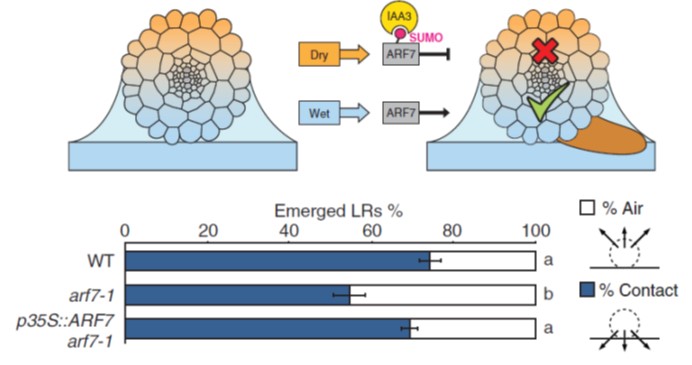
Root branching toward water involves posttranslational modification of transcription factor ARF7 ($) (Science)
Plant Science Research WeeklyRoots do amazing things, particularly in terms of how they optimize their growth in response to their very local environment including water, nutrients, microbes, and physical obstructions. Branching in regions of contact with water is called hydropatterning, and previous studies showed that an auxin…
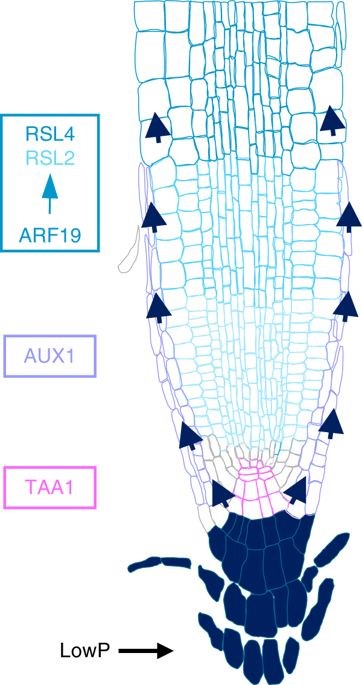
A mechanistic framework for auxin dependent Arabidopsis root hair elongation to low external phosphate (Nature Comms)
Plant Science Research WeeklyPlants respond to a low phosphate environment through increased elongation of root hairs. Bhosale et al. showed that low external P increases levels of the auxin (IAA) in Arabidopsis roots through the TAA1 (TRYPTOPHAN AMINO TRANSFERASE 1)-mediated auxin biosynthesis pathway. At the same time, the auxin…

Auxin Affects Capitulum Pattern Formation
Plant Physiology, Plant Physiology: On The InsideThe flower head (capitulum) is a morphological feature that defines the family Asteraceae (the daisy or sunflower family). A typical capitulum consists of many flowers (florets) and phyllaries (modified bracts) compressed into a single structure that mimics a single flower. Capitula commonly have two…

The secret of NIN (Nodule Inception) ($) (Plant Cell)
Plant Science Research WeeklyTwenty years ago, a genetic screen of Lotus japonicas identified NIN (NODULE INCEPTION), a transcription factor required for both early (infection thread) and late (nodule primordium development) stages of nodule formation. In daphne (a weak allele of NIN), infection threads form but not nodule primordia,…
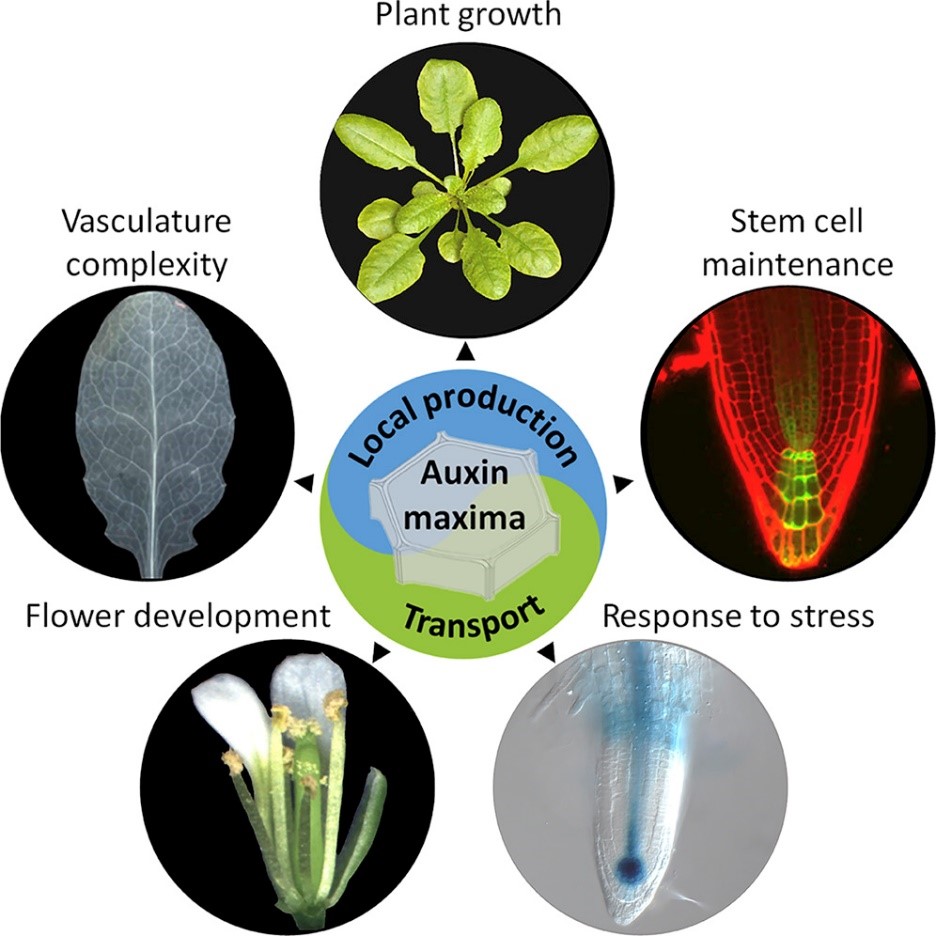
Local auxin biosynthesis is a key regulator of plant development ($) (Devel Cell)
Plant Science Research WeeklyMorphogenic gradients of auxin are essential for plant phenotypic plasticity. Polar auxin transport plays a central role in auxin maxima generation. The exquisite spatiotemporal expression patterns of auxin biosynthesis genes suggested that local sources of auxin may contribute to the formation of auxin…
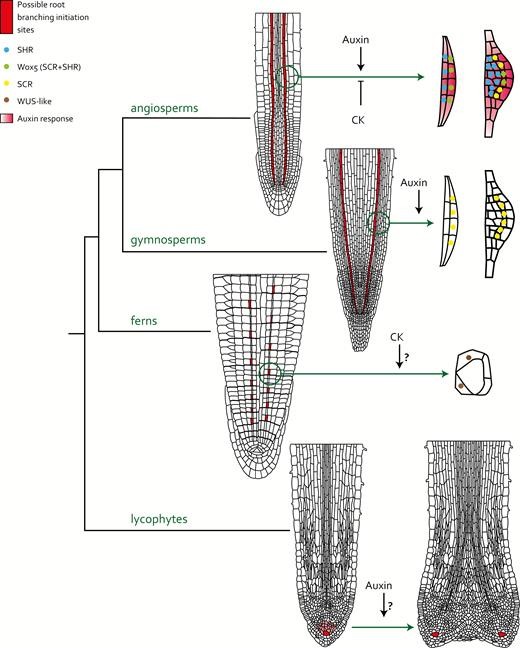
Review: The evolution of root branching: increasing the level of plasticity (J Exp Bot) ($)
Plant Science Research WeeklyWithout roots, plants are unable to gain height due to poor anchorage and are less fit for survival outside of humid environments. Root branching allows plants to better adapt to their environmental conditions and improves their capability to forage for water and nutrients. In this review, Motte and…
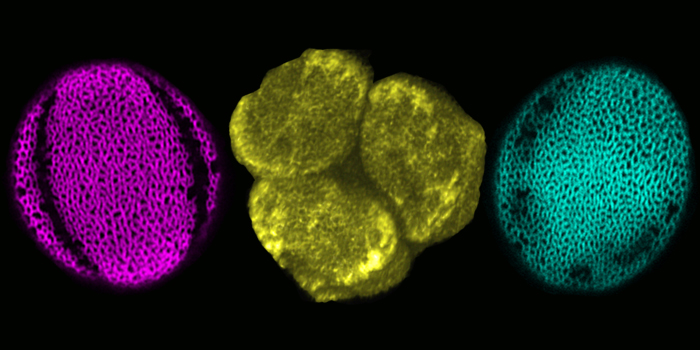
Exploring Pollen Patterns to Learn How Cells Create Distinct Domains
Research, The Plant Cell, The Plant Cell: In a NutshellLee et al. identify a protein involved in pollen aperture development and the formation of distinct membrane domains in microspores. https://doi.org/10.1105/tpc.18.00442
By Byung Ha Lee and Anna Dobritsa
Background: Pollen grains are famous for their ability to develop various intricate patterns…
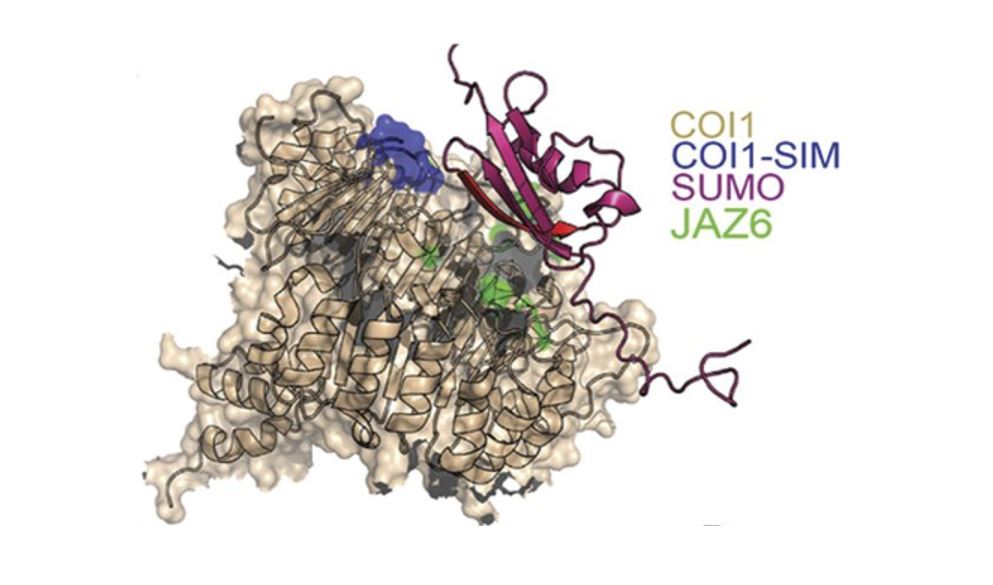
SUMO Aids Rapid Regulation of Hormone Responses
Research, The Plant Cell, The Plant Cell: In a NutshellSrivastava et al. identify a mechanism for rapid regulation of jasmonic acid signaling. Plant Cell https://doi.org/10.1105/tpc.18.00036
Background: The sessile nature of plants dictates that growth must be integrated with changes in the natural environment. Modulation of hormone signalling pathways…

